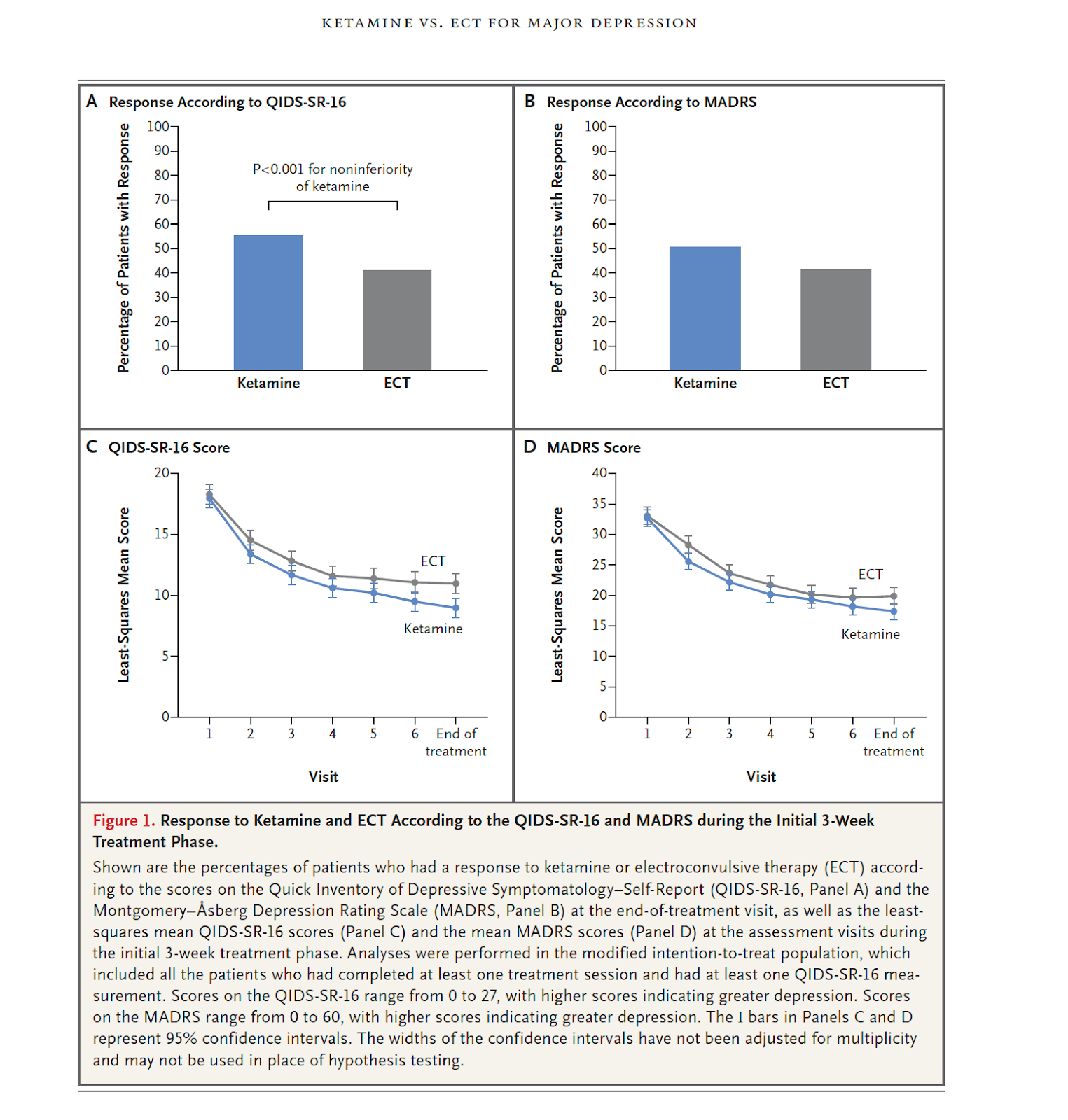No Increased Long-term Dementia Risk with ECT: Registry Data From Denmark
Out on Pubmed, from researchers in Denmark, in JECT, is this study
Long-Term Risk of Developing Dementia After Electroconvulsive Therapy for Affective Disorders.
J ECT. 2021 Apr 26. doi: 10.1097/YCT.0000000000000770. Online ahead of print.PMID: 33907075
The abstract is copied below:
Objectives: Severe depression is associated with an increased risk of developing dementia, however, whether treatment with electroconvulsive therapy (ECT) modify this risk remains unknown.
Methods: In this matched cohort study, 1089 consecutive in-patients with affective disorders, receiving ECT during the period 1982 to 2000, were matched with 3011 in-patients with affective disorders not treated with ECT (non-ECT), and 108,867 individuals randomly selected from the background population. The comparison cohorts were matched on sex, age, and the non-ECT cohort was further matched according to diagnoses and admission period and hospital. Dementia diagnoses were retrieved from the national patient health registry. Analyses were adjusted for disease severity, somatic, and psychiatric comorbidities.
Results: The cumulative incidence of dementia was 13.45% (10.75-16.46%) in the ECT cohort after 34 years of follow-up, 10.53% (8.5-12.81%) in the non-ECT cohort, and 8.43% (8.17-8.7%) in the background cohort. Using the ECT cohort as reference and age as the underlying time scale, the adjusted hazard ratio of developing dementia was 0.73 (0.52-1.04) in the non-ECT cohort and 0.61 (0.49-0.76) in the background cohort. The stratified analysis based on age at index (<65 years; 65-80 years; >80 years) found no age-related difference in the risk of developing dementia between the ECT cohort and non-ECT cohort.
Conclusions: The ECT treatment of affective disorders was not associated with an increased long-term risk of developing dementia compared with in-patients with affective disorders not treated with ECT.
And from the text:
In our matched cohort study of 1089 in-patients with affective disorders undergoing ECT, we found an increased incidence
and hazard of dementia compared with the background population. However, when the ECT cohort was compared with a
matched cohort of in-patients with affective disorders but not
treated with ECT we found no increased risk of dementia, although the risk of developing dementia was numerically higher
in the ECT cohort. This is in line with previous research showing
an approximately doubled risk of developing dementia in patients
with depression and recurrent depressive episodes are associated with even further increased risk. The numerical higher risk
in the ECT cohort could, at least partially, be due to more pronounced disease severity in the ECT cohort as indicated by the
distribution of ICD-10 diagnosis in the subsample of the ECT cohort and non-ECT cohort as the former had more severe depressions and more often with psychotic features. However, the severity
of disease might not be clearly reflected by previous psychiatric
hospital admissions. Therefore, it remains likely that patients in
the ECT cohort had more severe symptomatology as compared
with patients in the non-ECT cohort. The greater disease severity
in patients receiving ECT is well described, and ECT is often seen
as the treatment of choice in severe life-threatening disease and
as a last resort treatment in patients not responding to pharmacological intervention. When analyses were stratified on age,
ECT of geriatric depression (age, >65 years) was not associated
with an increased risk of dementia, although the precision of the
hazard estimates was low.
This is an important new epidemiological study from Danish patient registries. The main novelty of the data is the over-15-year follow up period. The small numerically (but not statistically significantly) higher dementia rate in the ECT group compared to the depression-not-treated-with-ECT group is likely due to the increased severity of illness in the ECT group. These are reassuring data for the long-term safety of ECT, but underscore the deleterious effects of mood disorders on the brain, and the need to treat early and definitively, to try to mitigate these risks.
Kudos to our colleagues at Aarhus University Hospital for this very helpful contribution to the ECT literature.





Comments
Post a Comment